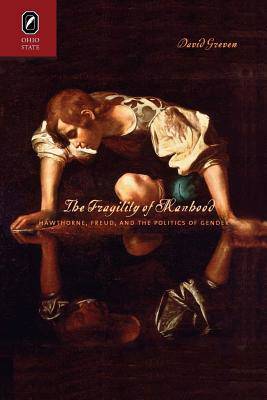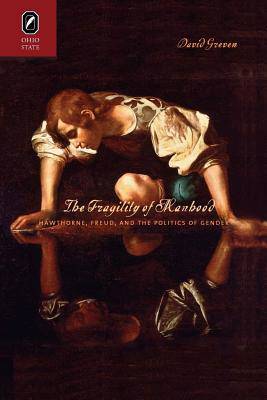
- Retrait gratuit dans votre magasin Club
- 7.000.000 titres dans notre catalogue
- Payer en toute sécurité
- Toujours un magasin près de chez vous
- Retrait gratuit dans votre magasin Club
- 7.000.000 titres dans notre catalogue
- Payer en toute sécurité
- Toujours un magasin près de chez vous
The Fragility of Manhood
Hawthorne, Freud, and the Politics of Gender
David Greven
Livre broché | Anglais
40,45 €
+ 80 points
Description
Merging psychoanalytic and queer theory perspectives, The Fragility of Manhood: Hawthorne, Freud, and the Politics of Gender reframes Nathaniel Hawthorne's work as a critique of the normative construction of American male identity. Revising Freudian and Lacanian literary theory and establishing the concepts of narcissism and the gaze as central, David Greven argues that Hawthorne represents normative masculinity as fundamentally dependent on the image. In ways that provocatively intersect with psychoanalytic theory, Hawthorne depicts subjectivity as identification with an illusory and deceptive image of wholeness and unity. As Hawthorne limns it, male narcissism both defines and decenters male heterosexual authority. Moreover, in Greven's view, Hawthorne critiques hegemonic manhood's recourse to domination as a symptom of the traumatic instabilities at the core of traditional models of male identity. Hawthorne's representation of masculinity as psychically fragile has powerful implications for his depictions of female and queer subjectivity in works such as the tales "Rappaccini's Daughter" and "The Gentle Boy," the novel The Blithedale Romance, and Hawthorne's critically neglected late, unfinished writings, such as Septimius Felton. Rereading Freud from a queer theory perspective, Greven reframes Freudian theory as a radical critique of traditional models of gender subjectivity that has fascinating overlaps with Hawthorne's work. In the chapter "Visual Identity," Greven also discusses the agonistic relationship between Hawthorne and Herman Melville and the intersection of queer themes, Hellenism, and classical art in their travel writings, The Marble Faun, and Billy Budd.
Spécifications
Parties prenantes
- Auteur(s) :
- Editeur:
Contenu
- Nombre de pages :
- 320
- Langue:
- Anglais
Caractéristiques
- EAN:
- 9780814252888
- Date de parution :
- 01-06-16
- Format:
- Livre broché
- Format numérique:
- Trade paperback (VS)
- Dimensions :
- 152 mm x 229 mm
- Poids :
- 471 g







